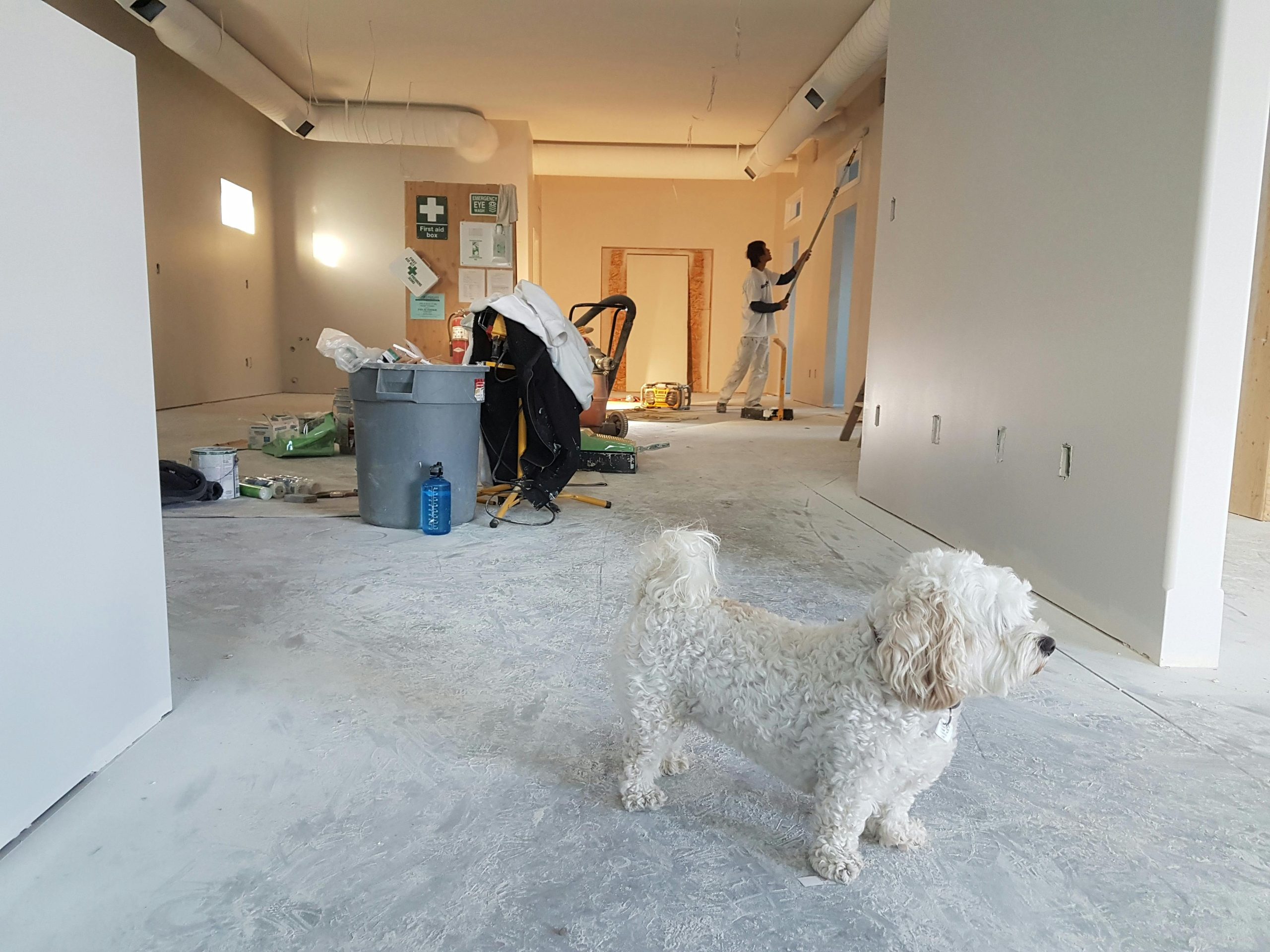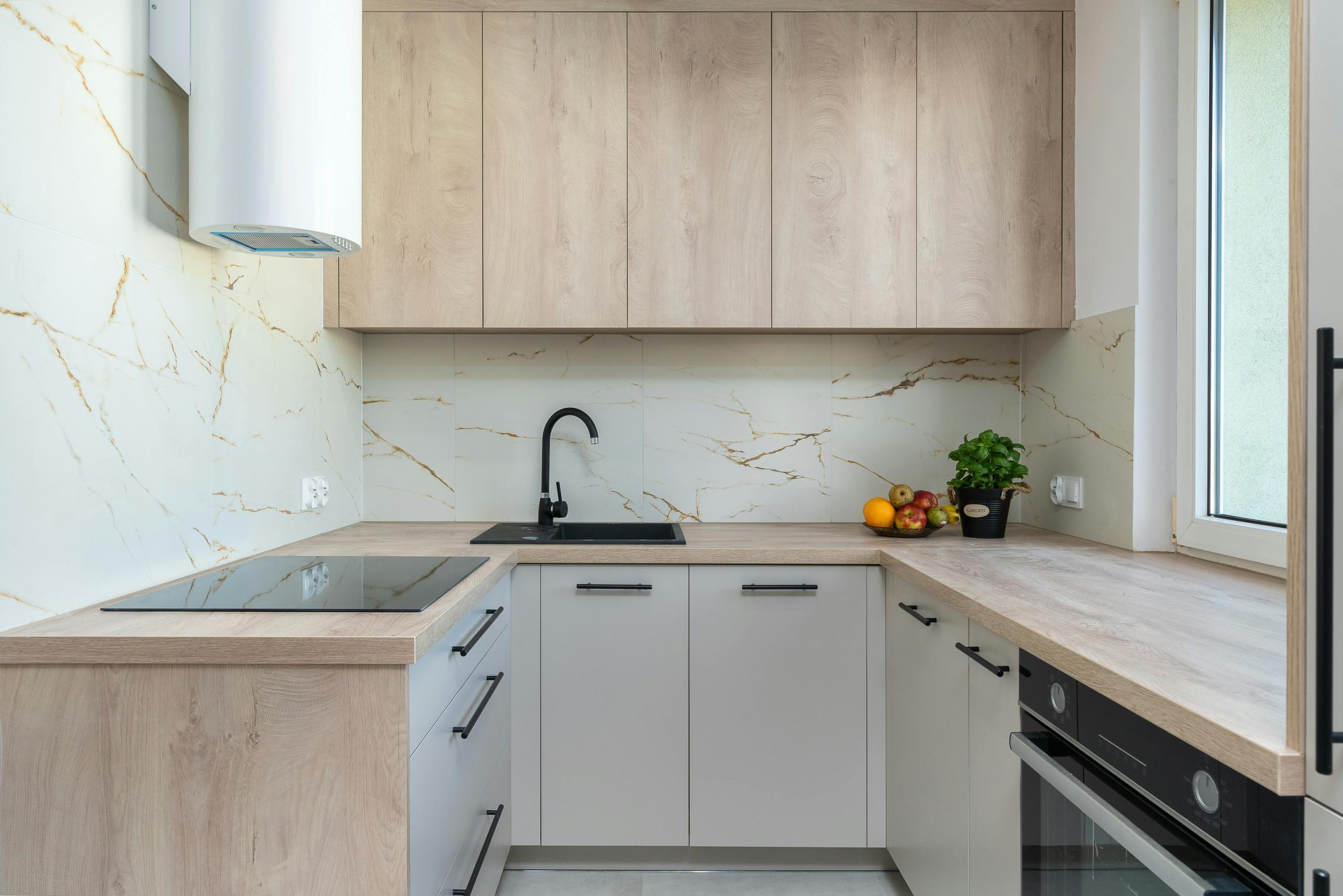Remodeling a kitchen is one of the most exciting (and stressful) home improvement projects. It transforms the heart of your home into a functional and stylish space—but it can also disrupt your daily routine for weeks or even months. Understanding how long a kitchen remodel takes can help you set realistic expectations, plan around the disruption, and keep your project on schedule.
In this guide, we’ll break down the typical kitchen remodel timeline, explain what can cause delays, and share tips to make the process as smooth as possible.
Average Timeline for a Kitchen Remodel

The length of time for a kitchen remodel depends on the scope of work. On average, most kitchen remodels take 6–12 weeks from start to finish. Larger or more complex projects can extend to several months.
Here’s a general overview:
- Minor remodel: 3–6 weeks
- Mid-range remodel: 6–10 weeks
- Full renovation: 10–16+ weeks
Keep in mind that these estimates cover only the construction phase. Design, planning, and product ordering often add several weeks before demolition even begins.
Step-by-Step Kitchen Remodel Timeline
Breaking your remodel into clear stages can make the process easier to manage.
1. Planning and Design (2–6 Weeks)
The first step is deciding what you want your kitchen to look like and function like.
- Define your goals: Do you want a layout change, new cabinets, or a complete overhaul?
- Create a budget: Include labor, materials, permits, and a 10–15% contingency. If you’re concerned about small kitchen remodel cost, now is the time to price out your options.
- Hire a contractor or designer: Professional guidance ensures accurate measurements and helps avoid costly mistakes.
- Select materials: Cabinets, countertops, flooring, fixtures, and appliances should be chosen early to avoid delays later.
Tip: Order materials early, especially custom cabinets, which can take 6–10 weeks to arrive.
2. Permits and Approvals (1–4 Weeks)
If your remodel involves moving walls, adding electrical circuits, or altering plumbing, you’ll likely need permits.
- Submit applications early: Some cities process permits in a few days, others take several weeks.
- Schedule inspections: Build extra time into your timeline for required city inspections.
3. Demolition (1–2 Weeks)
This is when your old kitchen gets torn apart.
- Clear the space: Remove personal items and set up a temporary kitchen elsewhere.
- Demolition work: Cabinets, countertops, appliances, flooring, and sometimes walls are removed.
- Disposal: Contractors haul away debris and prepare the space for construction.
Tip: Dust control is important. Ask your contractor to use plastic sheeting and floor protection to contain the mess.
4. Structural Changes (If Any) (1–3 Weeks)
If your remodel involves changing the layout—knocking down a wall, adding a window, or reconfiguring the floor plan—this stage takes extra time.
- Framing and construction: Walls are built or removed.
- Rough plumbing and electrical: Pipes, wiring, and ductwork are installed or rerouted.
- Inspection: Your city inspector will approve the work before you move on.
5. Installation of Major Elements (4–8 Weeks)
This is the longest phase of the remodel and where your new kitchen really starts to take shape.
Cabinet Installation (1–3 Weeks)
- Cabinets are measured, leveled, and installed carefully to ensure a perfect fit.
Countertops (1–3 Weeks)
- Countertops are templated after cabinet installation.
- Fabrication usually takes 1–2 weeks, then installation is scheduled.
Flooring (1–2 Weeks)
- Flooring is installed either before or after cabinets, depending on the material.
- Allow time for curing if using tile or specialty finishes.
Appliances & Fixtures (1 Week)
- Appliances, sinks, and faucets are installed after countertops are in place.
6. Finishing Touches (1–2 Weeks)
This is where everything comes together.
- Backsplash installation
- Painting walls and trim
- Final adjustments: Hardware, lighting fixtures, and outlet covers are installed.
7. Final Inspection and Walkthrough (1–2 Days)
Your contractor will walk you through the finished space to ensure everything is complete and up to your standards. Any final touch-ups or corrections are handled at this stage.
Factors That Can Delay a Kitchen Remodel
Even with careful planning, unexpected issues can push back your timeline.
- Material delays: Backordered cabinets, tiles, or appliances are one of the most common reasons for delays.
- Hidden issues: Water damage, mold, or outdated wiring discovered during demolition can require additional work.
- Permit delays: Slow processing or failed inspections can halt progress.
- Change orders: Making last-minute design changes extends both time and cost.
Tip: Communicate regularly with your contractor to stay ahead of potential delays.
Tips to Stay on Schedule

A well-organized plan is key to avoiding unnecessary delays.
- Order materials early: Especially for custom cabinetry and specialty items.
- Finalize decisions before work starts: Prevents costly mid-project changes.
- Hire experienced professionals: A reputable contractor with good reviews can keep the project moving efficiently.
- Create a realistic timeline: Build in buffer time for unexpected issues.
- Be available for quick decisions: Delays often happen when homeowners take too long to approve changes.
Budgeting for Time and Money
Time and money often go hand in hand during a remodel. Rushed jobs can lead to mistakes, while prolonged projects can cost more in labor.
- Set a clear timeline with your contractor: Include milestones and completion dates.
- Ask for weekly progress updates: Helps keep everyone accountable.
- Balance quality and speed: Cutting corners may save time now but cost more later.
Living Through a Remodel
Remodeling your kitchen means you’ll be without a fully functioning kitchen for several weeks. Prepare ahead of time:
- Create a temporary kitchen: Set up a microwave, toaster oven, and coffee maker in another room.
- Plan simple meals: Stock up on easy-to-prepare foods.
- Use disposable plates and utensils: Makes cleanup easier without a sink.
- Protect your home: Cover nearby furniture and floors from dust.
When to Remodel Your Kitchen
Timing your remodel strategically can make the process smoother.
- Avoid major holidays: You don’t want to be without a kitchen when hosting family gatherings.
- Consider weather: Spring and summer are popular for remodels but contractors may be busier.
- Plan around life events: Schedule your project when it will cause the least disruption.
Final Thoughts
So, how long does a kitchen remodel take? For most homeowners, you can expect 6–12 weeks of construction, with planning and product selection adding several weeks beforehand. Understanding each phase of the process—from design to final inspection—helps you stay prepared, set realistic expectations, and enjoy the transformation with less stress.
With proper planning, a clear budget, and open communication with your contractor, you can keep your remodel on schedule and create a beautiful, functional kitchen that you’ll enjoy for years to come.
